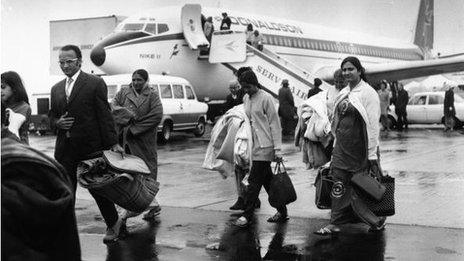Ugandan Asian refugees on life at Stradishall refugee camp
- Published
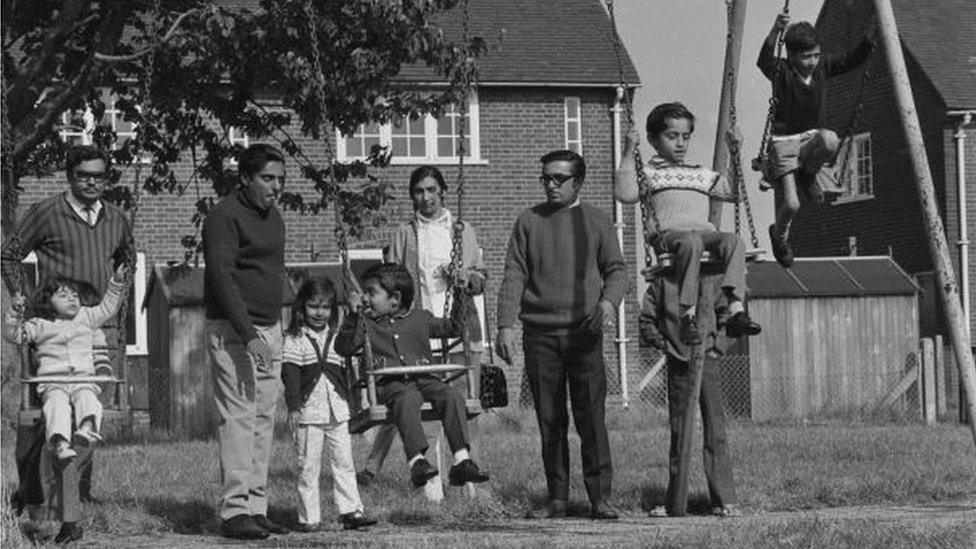
Between September 1972 and March 1973, more than 27,000 refugees arrived in the UK
Fifty years ago President Idi Amin gave Ugandan Asians just 90 days to flee the country.
Between September 1972 and March 1973, more than 27,000 refugees arrived in the UK, with the first 2,000 being housed initially at a camp at RAF Stradishall between Haverhill and Bury St Edmunds, before moving to settle in other parts of the UK.
To mark the anniversary, an oral history project entitled British Ugandan Asians at 50, external has gathered the stories of some of those who arrived at the camp as well as the volunteers who worked there.
The BBC has used some of these resources to tell their experiences of life at the Suffolk resettlement centre.

'My knees were knocking as I got off the plane'
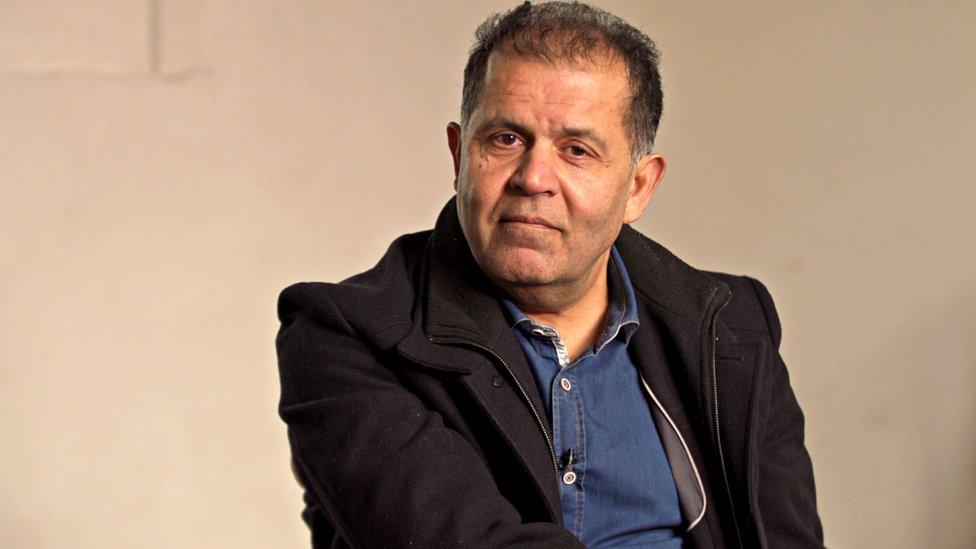
Prof Akbar Vohra says small acts of kindness can make a difference
Prof Akbar Vohra was a young boy when he arrived at Stradishall on 27 September 1972 along with his parents, brother and two sisters.
The Ugandan Asian refugees were forced by the Amin government to leave all their valuables and money in Uganda, taking just one suitcase per person and £55.
"My mother was told to leave the doors open so people could go in and take what they wanted," he said.
"Obviously I got strip-searched when we were at the airport. Obviously they were looking for valuables.
"Personally I just had a little blue marble and a magnet which I still have somewhere, it was my prize possession."
"Two or three things I can remember - getting off the plane, still in shorts, my knees were knocking as I got off the plane thinking wow this is cold," he said.
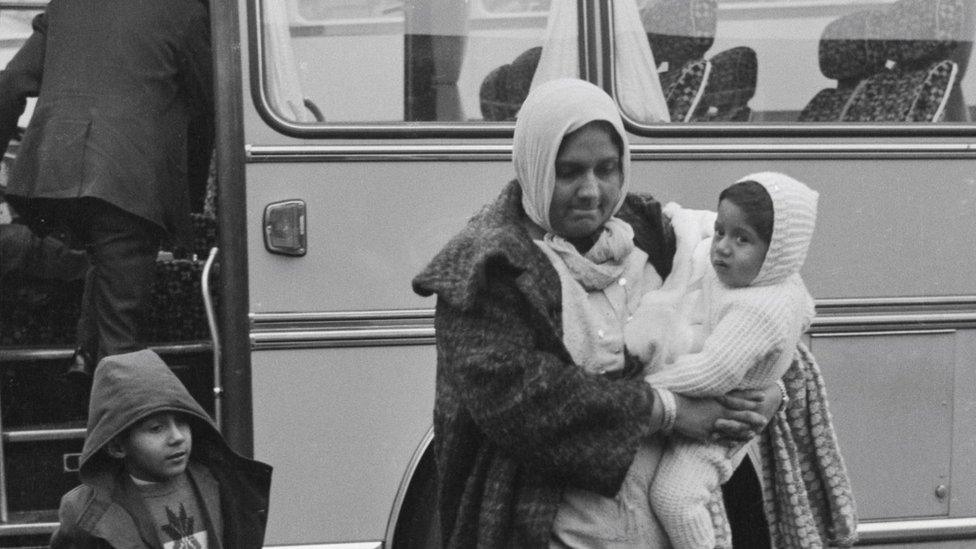
Refugees were transported by coach from Stansted Airport to the resettlement camp
He remembers being "really pleased" to be given given a coat from the "piles and piles of clothes" in the administrative building at Stradishall.
"I loved the boiled eggs that they were doing, and eggs in general. I can't remember the other food really. It doesn't really stick in my mind as being horrible.
"The water was terrible, awful, the food okay."
His family only stayed at the camp for about two weeks as his father managed to secure a job in Peterborough.
They travelled by coach from Stradishall to a furnished terraced house.
The neighbours showed Prof Vohra's parents how to light a coal fire as "we had never seen coal".
"The support we got to integrate from people our own age and neighbours was terrific," he said.
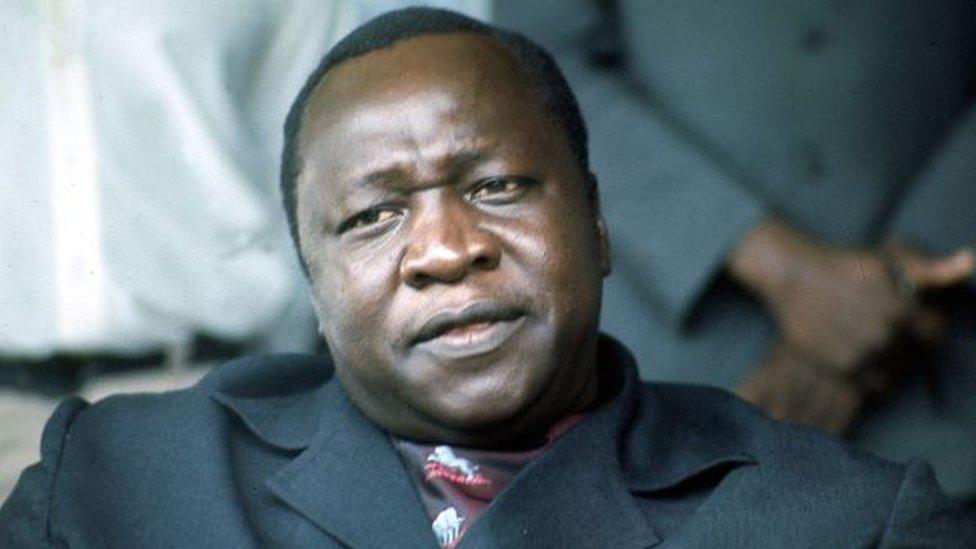
Former President of Uganda Idi Amin expelled thousands of Ugandan Asians from the country from 1972
Mr Vohra will soon retire as a professor of anaesthesia in intensive care at Manchester Royal Infirmary.
"I've been lucky that I've had a really great career, in teaching and education. I've taught all round the world," he said.
"History is important, reflecting on how small acts of kindness, which are in your gift, can make a big difference to other people's lives.
"I'd like to think that I've taught so many doctors and nurses, and other operating departments, people in this country as well as abroad, and if I'd not have had the opportunity or support to come here, if my family hadn't been given a furnished house by Peterborough Council to settle down, I wouldn't be here."

'Life for them was so strange and so odd'
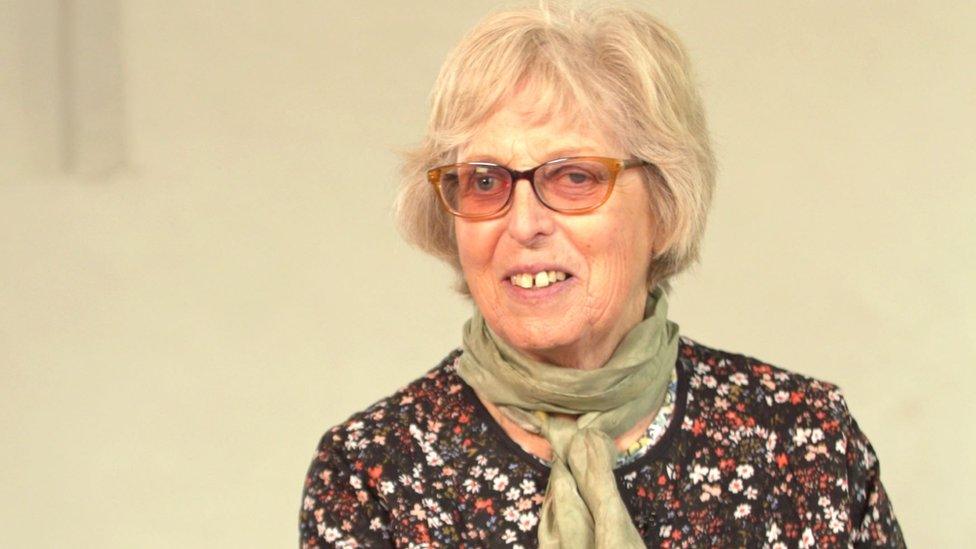
Teacher Sheila Bailey who volunteered to teach children arts and crafts remains in contact with one of her pupils
Teacher Sheila Bailey helped set up a playgroup for the younger refugees at Stradishall.
As the camp expanded, "bored" older children started coming along, prompting Suffolk's education authority to help provide a school.
Several classrooms were set up in the hangers and more staff were brought in, said Ms Bailey.
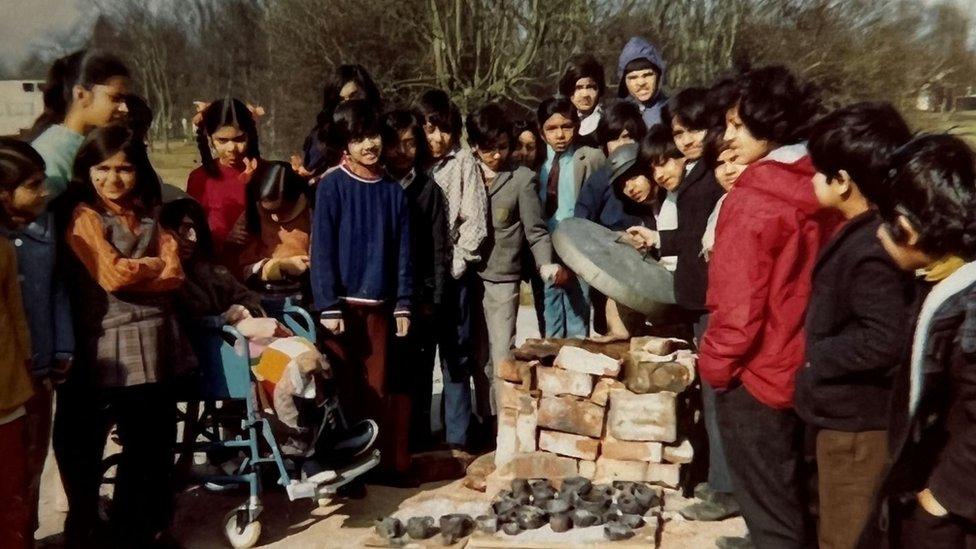
Children with pinch pots they had made during a craft lesson at the refugee camp
"I don't remember there being any particular guidance on what we should be teaching them other than a gist of what being in England was like," she said.
"And keeping going the general English and maths, they all seemed to be pretty hot at maths."
Singing and art activities also went down really well.
"I decided to do a sawdust firing and making these little thumb pots," said Ms Bailey.
"They were a little disappointed when all the pots came out black and quickly rectified that by demanding bright colours to paint them with."
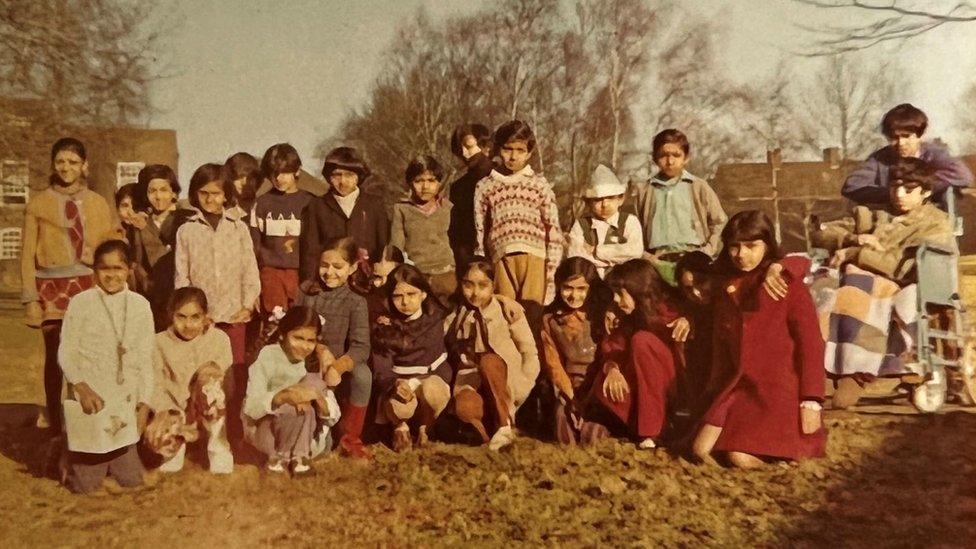
A camp school was soon set up by the local education authority for the refugee children
The children were taught English country songs.
"Life for them was so strange and so odd," said Ms Bailey. "They were just pleased to be free and safe.
"The children were very rewarding."

'We were meeting a completely new set of people'
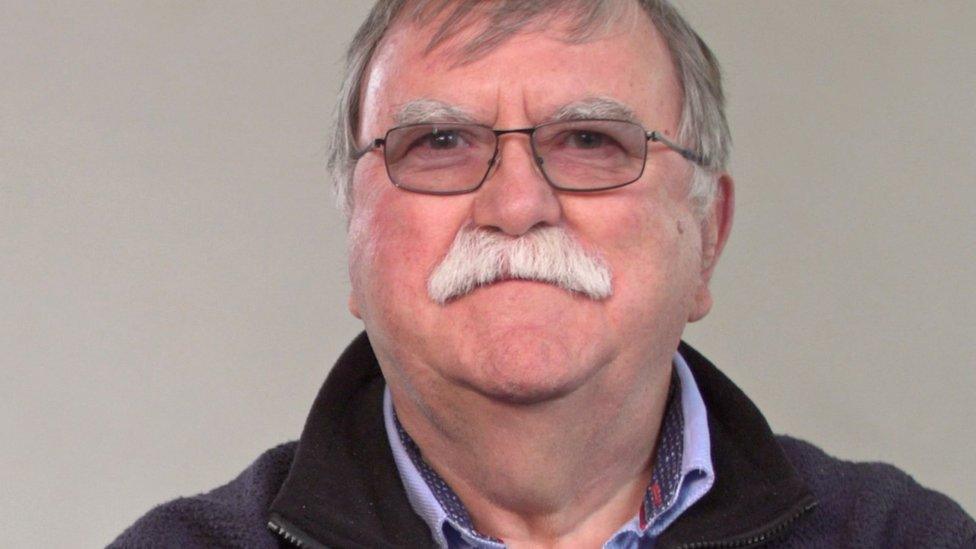
Stephen Poulter said his experience as a young police cadet with the refugees has had a life-long impact
Steven Poulton was a police cadet despatched to Stradishall and helped manage the telephone switchboard at night.
He was also involved with new arrivals, who would turn-up in the middle of the night.
"I'd never seen so many non-white people, living as I did at that time in a quiet rural county, the non-white faces were were almost non-existent," he said.
"The colours I remember were amazing, made our English garb look dull and dreary.
"It was good fun from the point of view we were meeting a completely new set of people... and could be of assistance to them.
"It went from long lines of sad and lonely and frightened people that used to appear out of the coaches, to people leaving with a lot more happiness, joy and enthusiasm in their whole being," he said.

'They were lost weren't they'
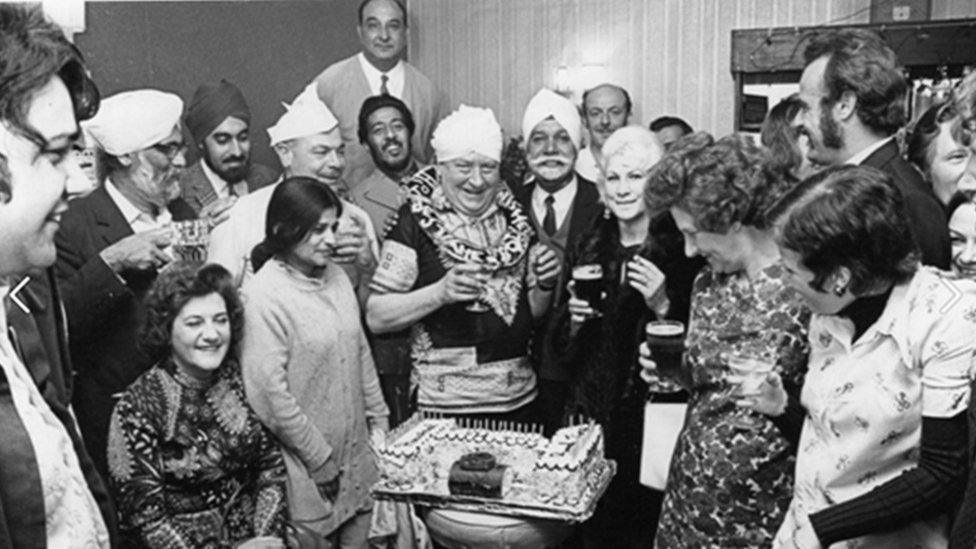
Refugees and locals celebrating the pub landlord's birthday at the Royal Oak in Little Bradley, near Haverhill
Alan Cordy, lived nearby in the village of Chedburgh.
Then a 17-year-old boy, he remember the refugees driving past the base and "just seeing so many displaced people out there, lost, they looked lost".
"They were lost weren't they, at the end of the day, it's something that stays with me," Mr Cordy said.
He was aware the Ugandans were coming to the UK after seeing stories of the expulsion on the news.
"Suddenly to have all these people who'd got nothing, who had to try and sort themselves out, find their relatives, get them to work and eventually settle down in the country."
He said "sadly history is repeating itself" with the situation in Ukraine.

'I was excited I was flying'
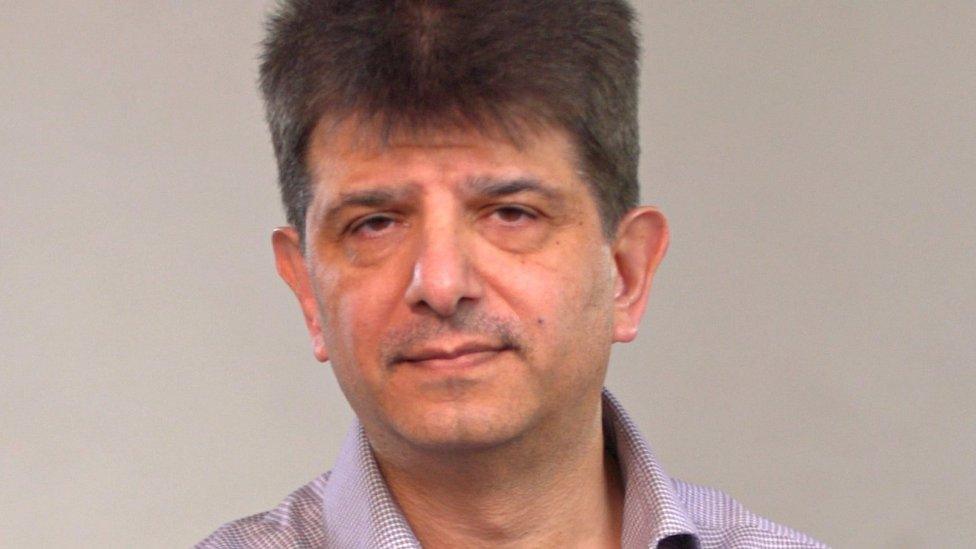
Mayur Seta enjoyed life as a boy at the camp
Mayur Seta arrived at the camp aged seven.
His extended family of seven "only had the clothes they were wearing and a few bits and pieces" although his aunty managed to smuggle some jewellery out in his cousin's teddy bear.
"I was very excited because I was on an aeroplane, I was excited I was flying," he said.
Landing at Stansted in Essex in early October, he remembers being taken to a room at the airport, given tea and biscuits as well as coats, jumpers and other warm clothes before being taken to Stradishall late in the night.
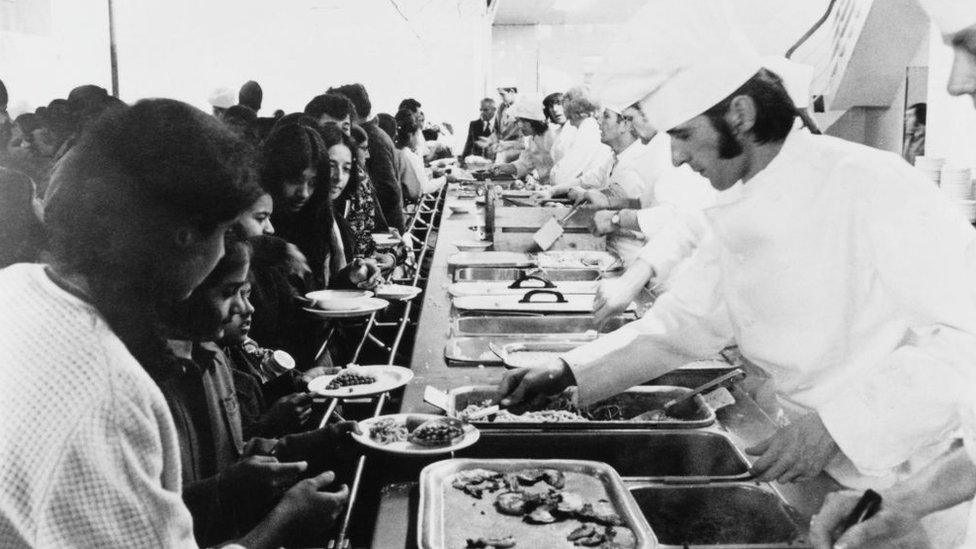
Ugandan Asian refugees being served meals at Stradishall reception centre, in Suffolk, October 1972.
A problem arose on the first evening after the refugees were offered dinner which contained meat, which they did not eat.
Mr Seta said his mother and a few ladies approached the manager of the canteen to ask if they could cook the meals instead.
After being given permission, a team went to an Asian food shop in Cambridge, to buy ingredients to make up an Indian thali menu, which they began serving daily.
"Within two days we were having an Indian meal every day, which was fantastic," he said.
Mr Seta and his extended family of seven lived in a "really comfortable house" on the base.
The experience of leaving Uganda became a distant memory as he so enjoyed his time at the camp, "especially with my Mum as head chef".

'It took public pressure to get them to take us in'
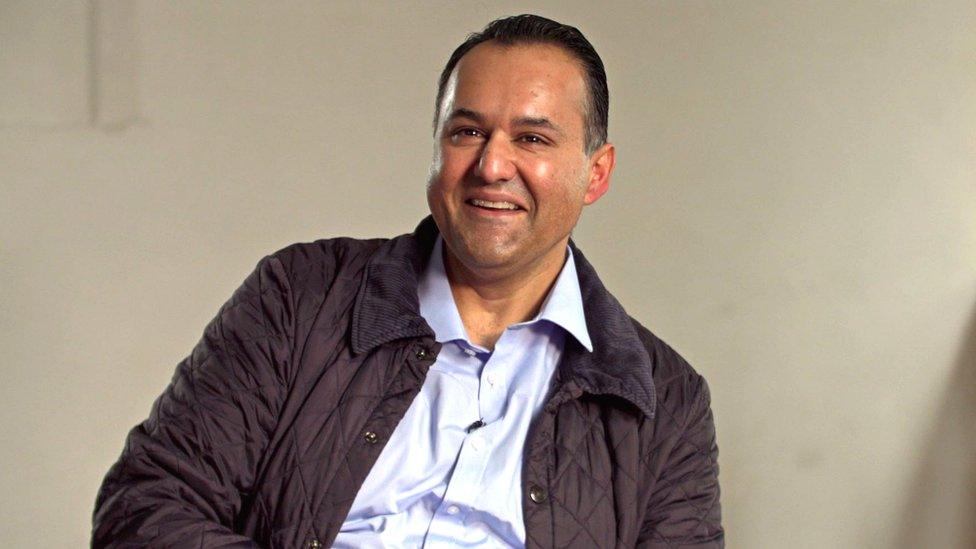
Fiyaz Mughal says Britain has a chequered history when it came to Idi Amin as they helped him to power
Fiyaz Mughal OBE, who now works in community cohesion, said the lessons of dealing with refugees still needed to be learnt, especially given the situation faced by Ukrainian refugees trying to get into the UK.
"I think the bureaucracy, the fact that security overrides asylum, so 'let's check your background, have you got a bill' when people are running away from Ukraine, is ludicrous," he said.
Britain he said, had helped Idi Amin into power, external and that it had had a responsibility to help the Ugandan Asians after Amin "turned" and was not the person they thought they could do deals with.
"But let's also be honest, Britain didn't just open its arms to us and say, immediately come in, it took public pressure to get them to take us in, so yes, they did the right thing in the end".

Find BBC News: East of England on Facebook, external, Instagram, external and Twitter, external. If you have a story suggestion email eastofenglandnews@bbc.co.uk
- Published29 October 2022
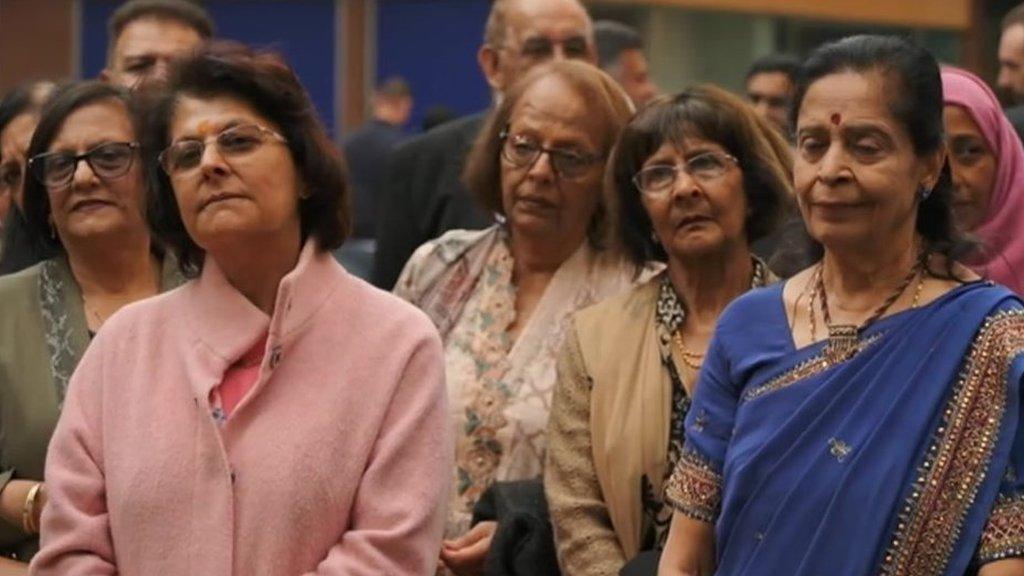
- Published29 October 2022
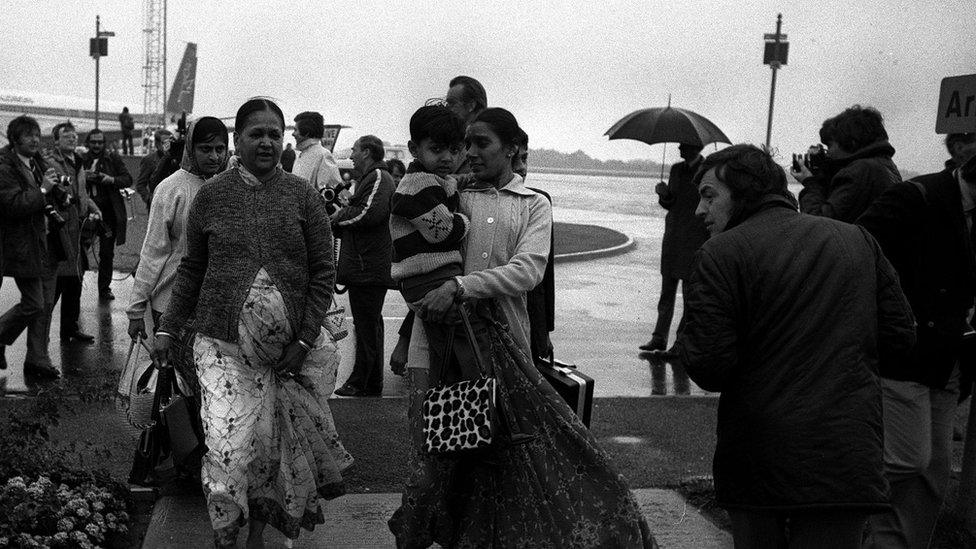
- Published4 August 2022
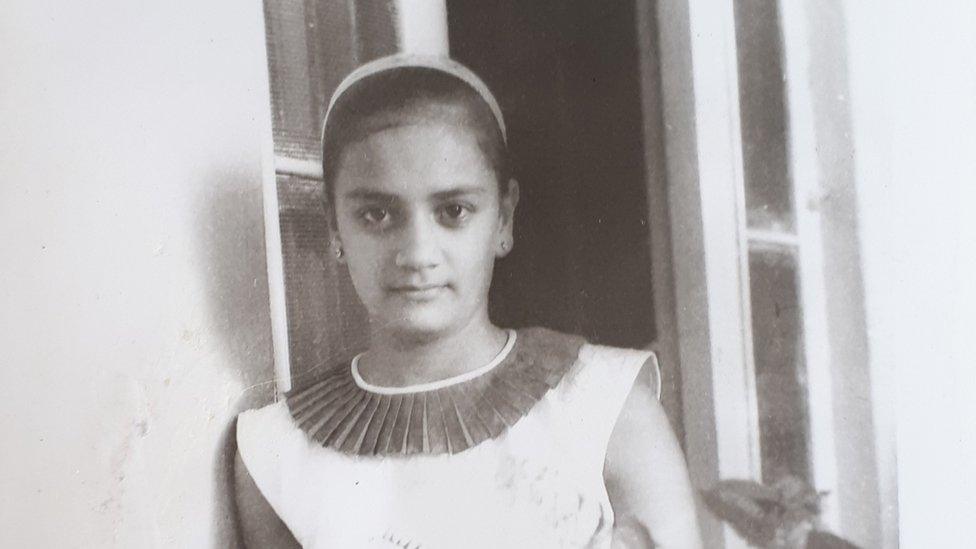
- Published26 April 2023
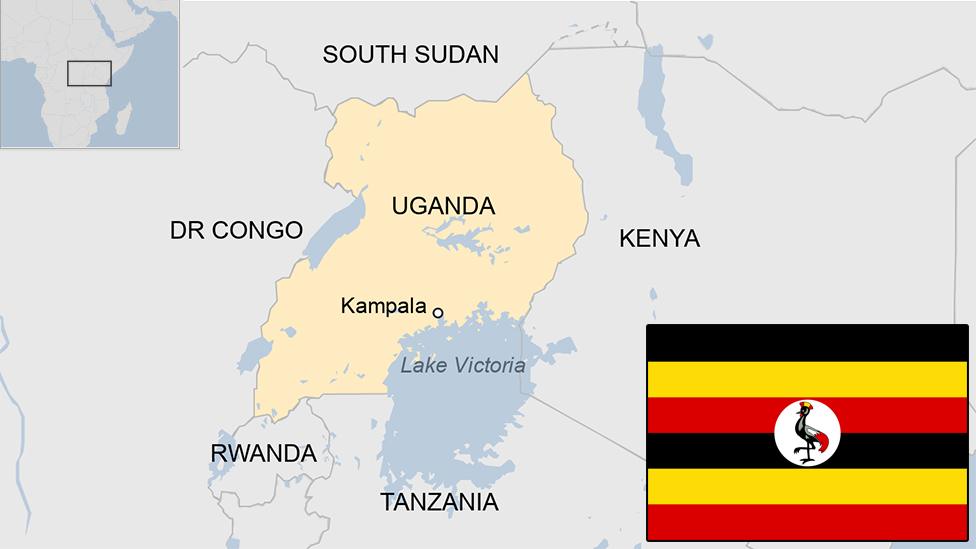
- Published6 August 2012
